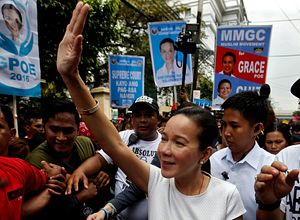As elections loom in the Philippines, foreign policy becomes even more pronounced. It is important to be reminded of Republic Act 7157 or the Philippine Foreign Service Act of 1991, which mandates that the Department of Foreign Affairs implement the three pillars of Philippine foreign policy: preserve and enhance national security, promote and attain economic security, and protect and promote the rights and welfare of Filipinos overseas. In line with this, the previous administrations of Fidel Ramos, Joseph Estrada, and Gloria Arroyo directed Philippine foreign policy toward development diplomacy and the protection of overseas Filipino workers. The belief was that strengthening the latter two pillars would ensure the first. Thus, internal security was seen as a prerequisite for a more coherent and consolidated nation.
When President Benigno Aquino came to office in 2010, however, external challenges forced him to pay closer attention to foreign policy matters. One of the biggest challenges that the Aquino administration is facing is an emergent and assertive China. Aquino revolutionized Philippine foreign policy when he challenged China’s claim in the South China Sea and filed an arbitration case against Beijing. The small nation is not asking the Permanent Court of Arbitration to rule on the territorial sovereignty aspect of its dispute with China. Rather, it seeks to clarify maritime entitlements in the South China Sea, something that is of utmost importance not just to the Philippines, but also to the coastal states surrounding the South China Sea, as well as all the state parties to the United Nations Convention on the Law of the Sea (UNCLOS). The court ruled in October 2015 that it had jurisdiction on the case, and a decision is forthcoming later this year.

































